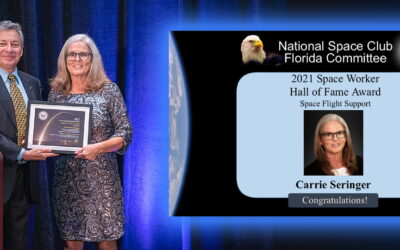Summary | five-minute read | Nelson Engineering’s expertise in the fundamentals of managing a remote workforce allows us to grow new business, increase productivity, and lower expenses during the pandemic. Here are the fundamental principles we developed and refined over decades of experience as work-from-home innovators.
Remote success starts at the office
Before the COVID-19 pandemic, Nelson Engineering’s staff already worked remote or from home two to three days a week. However, new engineers and support staff report to the office for a period of weeks prior to going remote. This approach allows our team to instill our work culture and acclimate employees to the systems they will be using when working from home. Understanding the work culture allows each new hire to connect with peers and feel like a team player.
Train employees on best practices
Don’t take for granted that everyone eventually figures out how to be effective working from home. We train our staff on best practices for working from home. Terry Tullis, a senior leader at Nelson Engineering, identifies the Top 3 Tips for Home Office Productivity in this short Teams Video (01:15).
Create opportunities to check-in
Without the chance of meetings in the hallway or coffee break chats, working from home can feel isolating. Individuals can feel disconnected from their team. So, make use of collaboration software such as Teams or Slack to recreate informal gathering places for casual conversation. Set up weekly department discussions and regular one-on-one check-in calls to give everyone a chance to catch up both as a group and individually.
Adjust your meetings
Zoom fatigue is real. Those feelings of isolation can easily translate into holding more—and longer—meetings than you would in the office. Here are a few ways to keep meetings from adding stress to your team’s day:
- Keep meetings brief – check-in calls and stand-up meetings should be just long enough to help address any issues that may be keeping your team from accomplishing their goals
- Stay on topic – providing (and then following) an agenda for longer meetings sets the scene for efficient and productive meetings
- Match agendas to attendees – plan shorter and more focused meetings with fewer people to maintain your team’s momentum
- Schedule meetings early in the day for technical staff that need uninterrupted time for focused work during the day. Productivity will go up!
- Don’t underestimate the value of simple phone calls – being on video means having to be “on” for the full length of every meeting, so aiming for a mix of video calls and more traditional conference calls is a quick and easy way to reduce stress
Focus on what matters
Working from home means commuting down the hall rather than down the road. For many people that means less separation between “work” and “life” in the ongoing effort to achieve work-life balance. Some people may feel less productive working from home—especially with the stress of a pandemic and its day-to-day effects buzzing in the background—so work with your team to identify realistic goals, processes, and deadlines to make sure each individual is successful. This may mean relaxing expectations about when the workday begins or ends and finding other ways to define “productivity.
I like working in bursts of productivity based on my energy levels. Since I can’t guarantee when my energy levels are optimal, I’ve taken action during the pandemic to boost my energy levels by engaging the company wellness program, increasing my activity levels and performing meal planning.
Jim Miles, Director of Business Development
Listen and communicate
In this new remote work reality, it’s important to strike a balance between knowing what your team is dealing with day to day and giving them the space to work effectively. At Nelson, we practice Servant Leadership, which is founded on the basic principle that, as leaders, we work to support our employees, not the other way around. For us, Servant Leadership relies on a general “open-door” attitude: building trusting relationships with our teams by being available to communicate and collaborate, resisting the urge to micromanage, and listening to your team—including reading between the lines. Think about what an open-door policy might look like for you in a remote work situation:
- Being available through messaging services for quick exchange of ideas (the equivalent of popping your head into someone’s office)
- Using collaborative tools like Teams for inter-office communications organized by topic to relieve email fatigue
- Limiting email to external and formal communications
- Holding virtual events like a group coffee break or lunch-and-learn
- Using surveys to regularly understand team trends
Ask your team
Your team is your best resource for learning how to manage them remotely—ask them for ideas, thoughts, and insights to improve your remote working relationship. Be open to their suggestions and proactive about supporting your team in ways that are genuinely helpful for them.
Engage in work self-care
Managing a remote workforce can introduce new kinds of stress into your workday, so remember to attend to your own needs too. If you thrive on structure, build that into your day with scheduled tasks and breaks. If you’re feeling stressed out, find ways to break up your day with walks, exercise, or a change of scenery. If possible, leave your work at the end of the day in a space separate from the rest of your home—or at least turn off your computer or close your laptop as a visual reminder that work is done for now.
If you’re feeling stressed out, find ways to break up your day with walks, exercise, or a change of scenery.
Celebrate success
When everyone is stuck at home, it can be easy to forget the value of gathering to celebrate the team’s successes. After major milestones or big wins, set aside some time for your team to get together virtually to praise their accomplishments and build camaraderie.
Prior to the pandemic, Nelson Engineering held quarterly morale-boosting events, as well as “win parties” to celebrate major contract awards. These days, we hold regular game parties over Teams where we assemble mixed teams led by employees to play trivia and puzzle games. These virtual game parties build camaraderie and give employees a chance to get to know each other, similar to mingling and chatting at our spring parties and holiday parties.
Conclusion
Working from home presents many challenges for your organization—but it also presents many opportunities to build a more open, trusting relationship with your team. Nelson Engineering’s expertise with the fundamentals of managing a remote workforce can help your organization discover strategies that work for your team!
About Nelson Engineering Co.
Founded in 1993, Nelson Engineering Co. is a small, employee-owned engineering firm headquartered in Merritt Island, FL. We blend the preparation of drawings and specifications, engineering studies, cost estimates, scheduling, environmental assessments and remediation, design reports, master planning, construction support with lifecycle asset management expertise. We employ over 100 professionals in the mechanical, electrical, civil, chemical, industrial, environmental, safety, fire protection, and aerospace disciplines.




